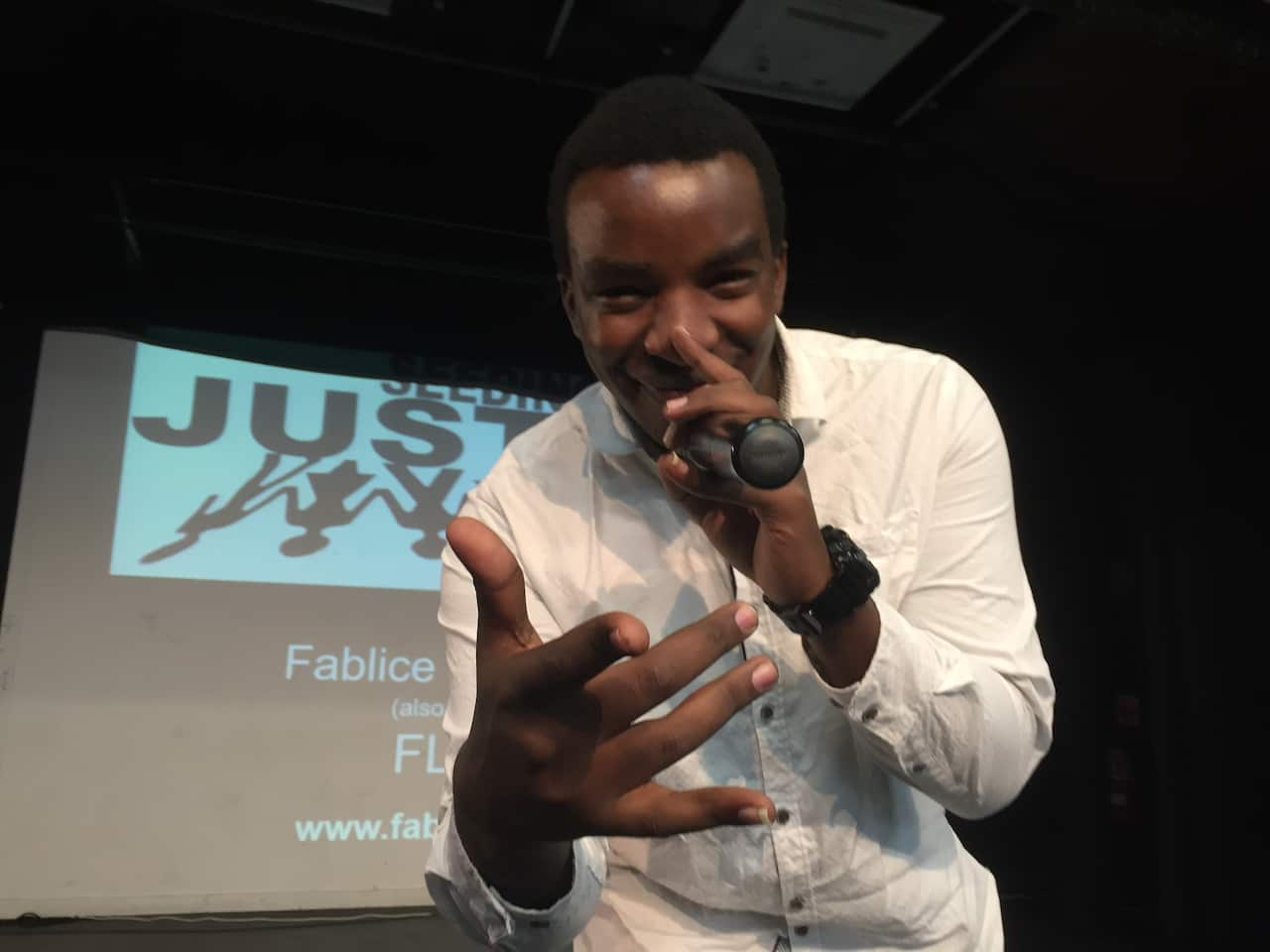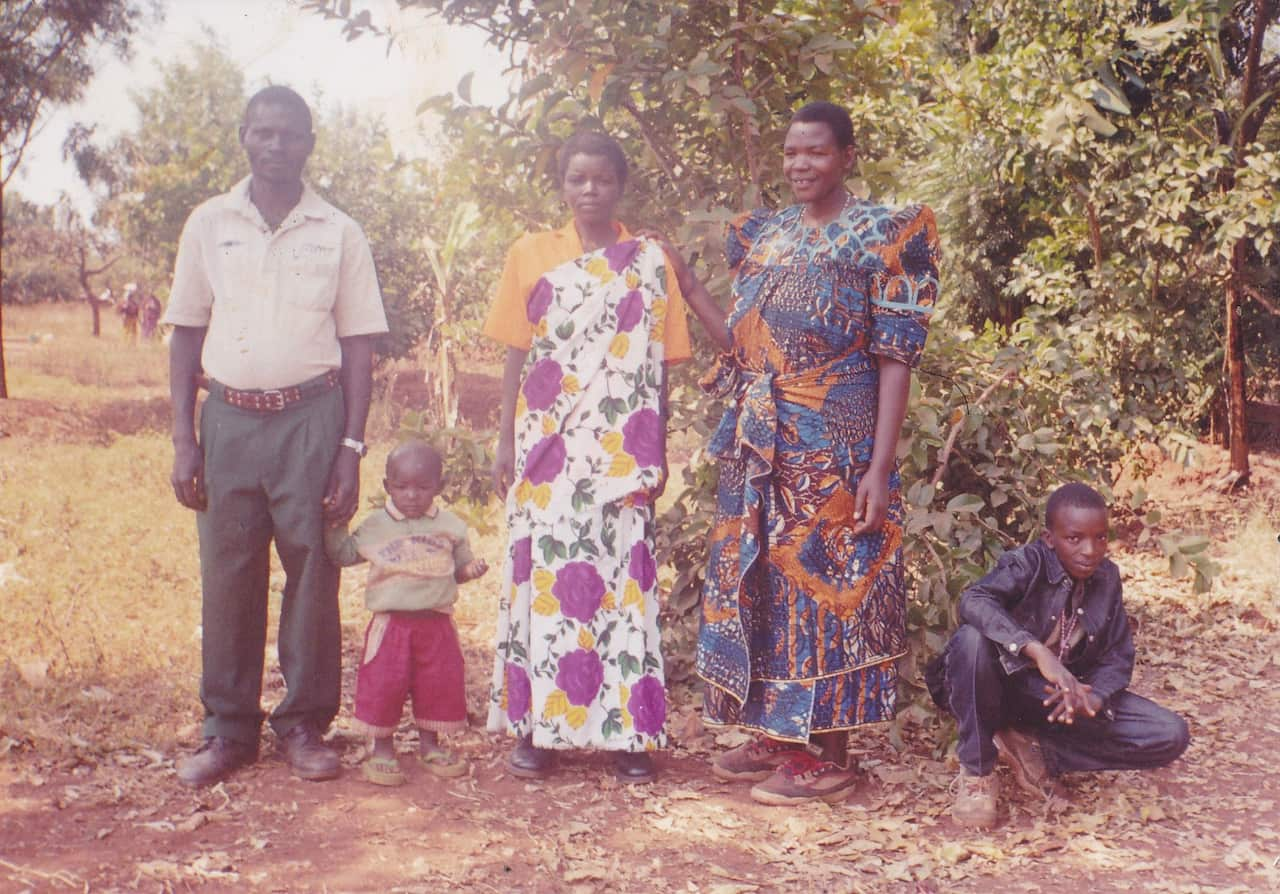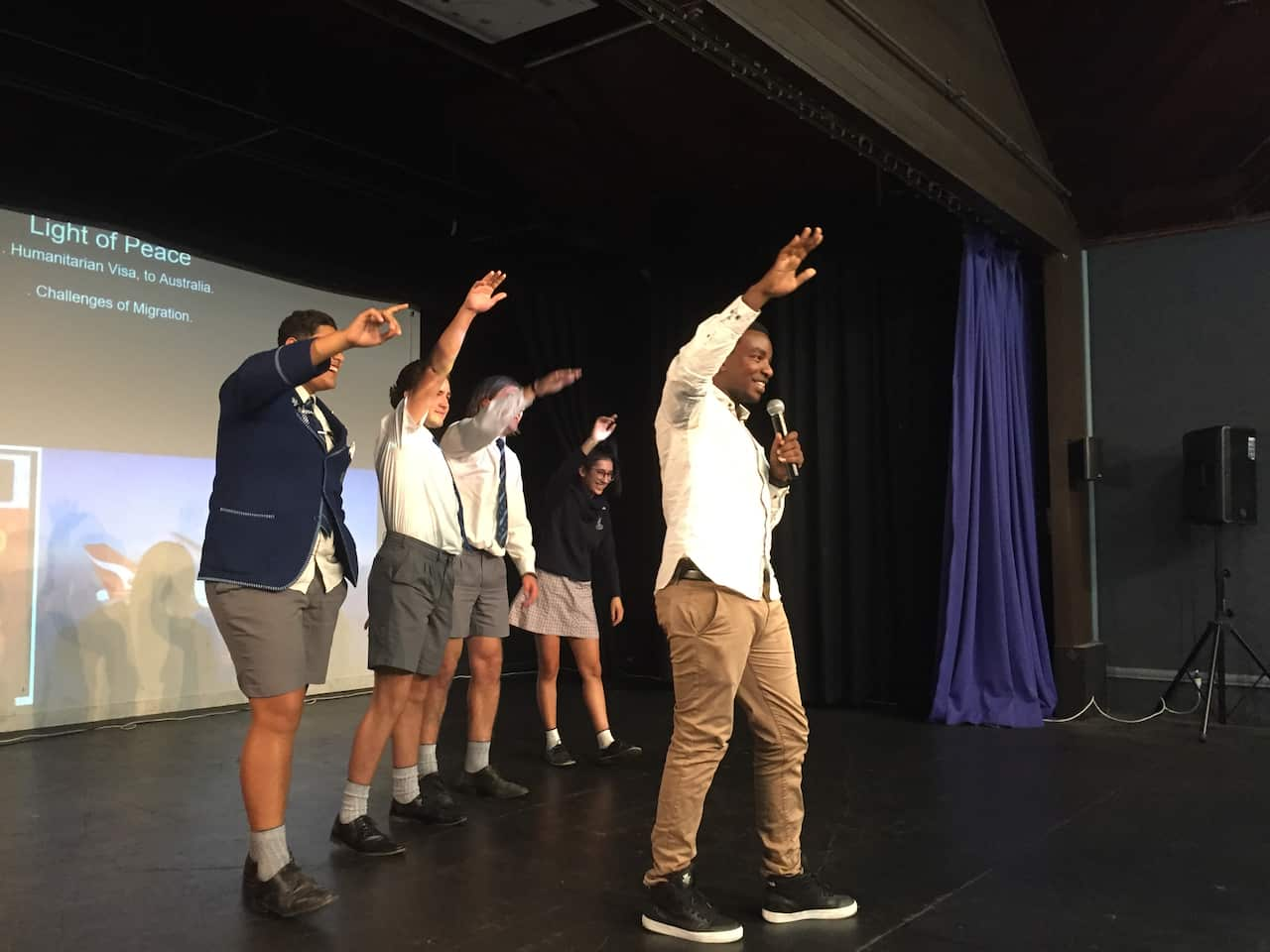Fablice Manirakiza arrived in Australia as a refugee in 2007, unable to speak a word of English.
Now the 26-year-old rapper from Burundi is using music to encourage other young people to "change the world".
Manirakiza, a former child soldier, creates interactive workshops for school students which draw on his own story.
"I lost my parents when I was eight years old, and all these challenges I faced in a third world country, yet I've managed to be who I am today sharing my story and making an impact," he tells SBS News.
"So I tell them 'if you think I'm changing the world, why can't you?'"

Fablice Manirakiza performing at a school. Source: SBS News
He wants to convince others they too can be the masters of their own future.
"I want each and every young person to understand that they're all capable of changing the world, especially those who live in such a country as Australia."
Since arriving 12 years ago, Manirakiza, who is based in Victoria, has completed his university studies in international business and is now studying criminology.
In 2016, he was named the Victorian young achiever of year and he has just received the Kirk Robson award from the Australia Council which recognises his work with disadvantaged communities.

Manirakiza, far right, with some family members in a refugee camp in Tanzania. Source: Supplied
During an interactive workshop at Assumption College in Victoria this week, Manirakiza discussed anti-refugee sentiment being discussed in Australia ahead of the election.
He told school students it was a myth that refugees were stealing jobs from unemployed Australians, and instead pointed the finger at technology, with devices like self-service checkouts at supermarkets.
"Your own machines are stealing your jobs, you know, so there is a bit of confusion out there, there is a bit of misleading out there," he said.
It was a point that resonated with Year 12 student Alysha Literski who suspects those who accuse refugees of stealing jobs are not motivated to find work for themselves.
"The people saying jobs are being stolen are the people who are just sitting around not trying to get jobs. It's not the refugees stealing the jobs, they want to work and they have a right to be able to work," she said.

Manirakiza performing with the students. Source: SBS News
Student Daniel Parkinson said Manirakiza's story struck a chord with him.
"He talked a lot about small actions creating chain reactions and it’s a really good thing to talk about because it tells everyone that you don’t have to go out and do these massive things, you can do small things like picking up rubbish or being nice to another person, which creates chain reactions, and those chain reactions can lead to bigger things, so that’s changing the world.”
Fellow student Rowan Conroy said hearing first-hand accounts of life in a war-torn country was eye-opening.
“We hear stories of terrible things happening in other countries, the Middle East and Africa, and you hear of the stories of the Rwandan Genocide, but you never actually properly get a true understanding of what it’s like until you actually hear someone talk about just how hard it can be.”
Share

